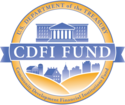4 Small Business Loan Options During Coronavirus
Business Loan Options During COVID-19
The COVID-19 (novel coronavirus) pandemic has posed unprecedented challenges for the American small business economy. As states around the country have issued stay-at-home mandates and other strict requirements, many businesses have been forced to adapt their models or temporarily close their doors. “Non-essential” businesses have seen their income streams dry up entirely with no guarantee of when the pandemic will subside, and the restrictions lift. Even “essential” businesses have had to contend with unique challenges. For example, many restaurants have shifted from sit-down service to curbside pickup and delivery options, in hopes of salvaging some of their profits.
The good news for businesses is that relief is on the way. Recently, the federal legislature approved an economic stimulus package worth $2 trillion. The “Coronavirus Aid, Relief, and Economic Security Act” (or the CARES Act), includes a dynamic array of initiatives intended to help the American people through these difficult times, to include an expansion of unemployment benefits and a plan to send $1,200 checks to each adult who meets specific income requirements. The stimulus package also provides for businesses, setting aside $376 billion for small business loans. If you own a small business and have been feeling the economic strain of this pandemic crisis, here are a few things to know about your business loan options during COVID-19.
- Know if you qualify. The CARES Act defines a “small business” as any business with fewer than 500 employees. If your business fits this qualification, then you are eligible to apply for Small Business Association (SBA) funding allowed for by the CARES Act. Note that restaurant or hotel chains, even if they have more than 500 employees overall, still qualify provided they have fewer than 500 employees per location. All nonprofit organizations and faith-based organizations with payroll employees are also eligible.
- Know when to apply. The CARES Act business loans became available starting on Friday, April 3. Businesses can still apply through June 30 but be wary of waiting: the CARES Act only set aside $376 billion for small businesses, and while that seems like a lot of money, the fact is that many companies are hurting now. These business loans will be given out on a first-come, first-served basis, which means that applying right now will give your business the best odds at getting some financial relief.
- Know the options. All usual SBA funding is still available for application at this time. The CARES Act has also created a few temporary programs explicitly intended to help businesses that have been dealt a blow by COVID-19. These include:
- The Paycheck Protection Program (PPP). The PPP loan program intends to help companies to keep their employees on the payroll. Employers who receive loan money through this program can receive 100 percent loan forgiveness by 1) keeping all employees on their payroll for at least eight weeks, and 2) use money not spent on payroll for utilities, rent, or mortgage payments. Employers can use money from a PPP loan to rehire laid-off or furloughed employees.
- The Economic Injury Disaster Loan Advance (EIDL). EIDL loans are designed to help businesses that have experienced temporary losses of revenue due to disaster situations. The COVID-19 disaster has activated this loan program and given all small business owners throughout the United States the opportunity to apply for EIDL advances of up to $10,000. Business owners can use these funds to pay for operating expenses and stay afloat during this difficult time. The SBA will not require businesses to repay EIDL advances.
- SBA Debt Relief. Through this program, SBA will offer small businesses “a financial reprieve” to help them with existing debts. This debt relief is only available for SBA loans. Specifically, the SBA will “automatically pay the principal, interest, and fees of current 7(a), 504, and microloans for a period of six months.” If your business was recently issued one of these loans, you will likely already have heard from the SBA about this debt relief. You do not need to do anything to apply.
- Know not to worry about tax liability. Often, even business owners experiencing difficult times can be hesitant to apply for loans. Repayment terms can be a nightmare, and even business loans paired with debt forgiveness sometimes come at the cost of increased tax liability. Not only are the SBA’s PPP and EIDL loan programs set to offer full debt forgiveness, but they also will not impact your business’s tax liability. Any forgiven debt linked with the CARES Package will not be considered taxable on your 2020 business taxes.
- Know where to apply for SBA loans. Another obstacle to SBA loans for business owners is that many people just don’t know how and where to apply for these funding options. Fortunately, in most cases, you will be able to apply for PPP or EIDL loans directly through your usual bank. The SBA distributes its business loans through approved SBA lenders. At Resource One Credit Union, we are proud to say that we are an approved SBA lender and are ready and able to help you with your applications for CARES Act loans.
COVID-19 has turned the world upside down in many ways, leading to considerable increases in unemployment numbers and putting countless businesses in jeopardy. This time will undoubtedly prove to be one of the most challenging in history for small businesses in the United States. The CARES Act is there to help protect businesses, and Resource One Credit Union is here to help you understand available loan options and take advantage of potentially business-saving loan options. Contact us today to get started.





